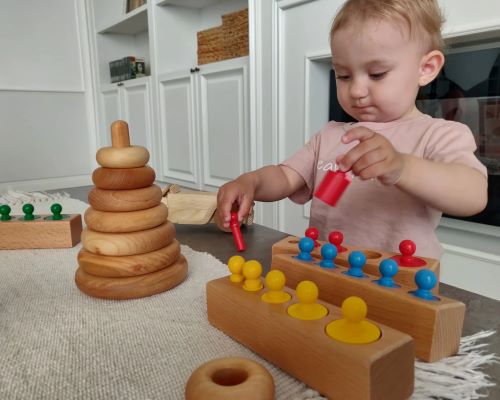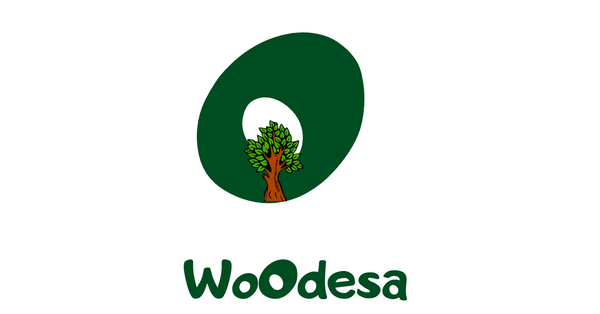
10 Benefits of Montessori Toys for Child Development for 1-Year-Olds
Share
Montessori toys have gained popularity for their focus on fostering holistic child development. Designed to encourage independent exploration and hands-on learning, Montessori toys offer numerous benefits for children at different stages of development. In this article, we will explore the specific advantages of Montessori toys for 1-year-olds and how they contribute to their overall growth and learning experience.
1. Development of Fine Motor Skills: At the age of 1, children are developing their fine motor skills, which involve using small muscles in their hands and fingers. Montessori toys, such as stacking blocks or puzzles with chunky pieces, help improve hand-eye coordination, grasp, and manipulation skills.
2. Sensory Exploration and Stimulation: Montessori toys often incorporate various textures, colors, and shapes to engage a child's senses. Toys like sensory balls, textured puzzles, or fabric books provide opportunities for sensory exploration, stimulating their tactile, visual, and auditory senses.
3. Cognitive Development and Problem-Solving Skills: Montessori toys are designed to encourage problem-solving and critical thinking. Shape sorters, nesting cups, or puzzles help 1-year-olds develop cognitive skills like categorization, matching, and spatial awareness.
4. Language and Communication Skills: Language development is crucial during the first year of a child's life. Montessori toys with labels, books with simple illustrations, or toys that make sounds when pressed contribute to language and communication development. They introduce vocabulary and encourage early communication skills.
5. Independence and Self-Confidence: Montessori toys emphasize independent play and allow children to explore and discover at their own pace. Toys like latch boards, simple puzzles, or open-ended building blocks promote independent problem-solving, fostering a sense of accomplishment and boosting self-confidence.
6. Social and Emotional Development: Playing with Montessori toys can help 1-year-olds develop social and emotional skills. Toys that encourage turn-taking, sharing, or cooperation, such as stacking rings or building sets, facilitate social interactions and promote emotional awareness.
7. Concentration and Focus: Montessori toys often engage children in activities that require concentration. Through engaging toys like threading beads or nesting dolls, 1-year-olds learn to focus their attention, enhancing their ability to concentrate on tasks as they grow.
8. Gross Motor Skill Development: While Montessori toys are commonly associated with fine motor skills, they can also support gross motor skill development. Push toys, pull-along toys, or crawl tunnels provide opportunities for 1-year-olds to practice their walking, crawling, and balance.
9. Creativity and Imagination: Montessori toys prioritize open-ended play and imagination. Toys like wooden blocks, play dough, or art materials allow 1-year-olds to explore their creativity, develop imagination, and express themselves through different mediums.
10. Parent-Child Bonding: Montessori toys can strengthen the bond between parents and their 1-year-olds. Engaging in play with Montessori toys fosters positive parent-child interactions, promotes communication, and creates opportunities for shared experiences and joyful moments together.
